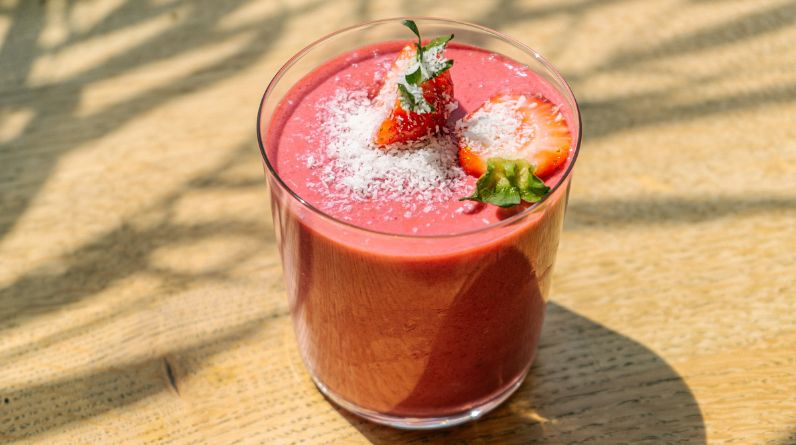
UNRAVELING THE MUSCLE-BUILDING MAGIC
In the quest for sculpted physiques and bulging biceps, many fitness enthusiasts and athletes swear by a secret weapon – protein supplements! These powders, bars, and shakes have become the knights in shining armor for those aiming to conquer the ever-elusive realm of muscle growth. But wait, before we dive headfirst into the world of muscle-bound marvels, let’s get to the meat of the matter – protein supplements!
The Protein Powerhouse: Unleashing the Potential
Protein’s Multifaceted Role: Protein indeed wears many hats in the body’s grand production. Beyond muscle growth, it’s like a universal worker involved in various tasks. Imagine proteins as the laborers of a bustling construction site. They not only build structures (like muscles) but also oversee repairs, serve as messengers (hormones), and help maintain a stable environment (enzymes).
The Challenge of Dietary Protein: While it’s true that foods like steak and eggs are excellent protein sources, getting adequate protein solely from whole foods can pose some challenges. For instance, not everyone can consume large quantities of these foods due to dietary restrictions, preferences, or allergies. Also, for those who engage in intense physical activities like bodybuilding or endurance training, the sheer volume of whole foods required to meet their protein needs can be daunting.
The Convenience Factor: This is where protein supplements come to the rescue. They offer a convenient, concentrated source of protein that’s easy to consume and often more budget-friendly than purchasing copious amounts of steak or salmon. It’s like having a protein-packed, on-the-go option in your gym bag or kitchen cupboard.
Precision in Muscle Building: Protein supplements can also provide a level of precision that whole foods can’t always match. They offer predetermined doses of protein, allowing individuals to tailor their intake to meet specific goals. Whether it’s a post-workout shake to kickstart muscle recovery or a quick protein boost during a hectic day, supplements offer a streamlined approach to meeting protein targets.
Variety in Sources: Protein supplements encompass a wide range of sources, from animal-based whey and casein to plant-based options like pea, hemp, or soy protein. This diversity enables individuals to choose supplements that align with their dietary preferences, whether they’re vegan, vegetarian, or omnivorous.
Quick Digestion and Absorption: In some cases, the speed of protein digestion matters. After a strenuous workout, for instance, your muscles are hungry for nutrients, and a protein supplement in liquid form can be rapidly digested and absorbed, delivering those essential amino acids where they’re needed most.
In essence, protein supplements aren’t meant to replace whole foods but rather to complement them. They’re the versatile tools in your nutritional toolbox, ensuring that your body receives the precise amount of protein it needs for muscle growth, recovery, and overall well-being. So, whether you’re blending a smoothie with plant-based protein after a morning jog or mixing a scoop of whey protein post-weightlifting session, know that you’re harnessing the potential of the protein powerhouse in a convenient and effective way.
The Workout Conundrum: Protein’s Newfound Fame
The Time Crunch: Life in the 21st century is a whirlwind of responsibilities. Balancing work, family, and social commitments can leave little room for preparing elaborate, protein-rich meals. Imagine this scenario: You’ve just squeezed in a demanding workout session during your lunch break. You’re sweaty, in a hurry, and need nourishment. Here’s where the protein supplement steps in as your trusty sidekick.
On-the-Go Nutrition: Picture it as your post-workout superhero potion. Protein supplements come in various convenient forms, such as powders, bars, and ready-to-drink shakes. They require minimal preparation or even none at all. Just scoop, mix, or open, and voilà! You have a protein-rich meal or snack ready to fuel your muscles and kickstart recovery.
Versatility in Choices: The supplement market offers a plethora of options to cater to diverse preferences and dietary needs. Whether you’re a fitness enthusiast following a strict vegan diet or an athlete with lactose intolerance, there’s likely a protein supplement tailored to your requirements. This variety ensures that you can enjoy the benefits of protein without compromise.
The Speed of Recovery: After an intense workout, your muscles are like thirsty sponges, eagerly absorbing nutrients for repair and growth. Protein supplements, particularly those in liquid form, boast quick digestion and absorption rates. This means that within minutes of consuming a protein shake, those amino acids—the building blocks of muscle—can reach your muscles precisely when they need them most.
Precision in Protein Dosage: If you’re an athlete with specific protein targets to meet, supplements allow for precise measurement. You can calculate your protein needs based on your body weight and training intensity and then adjust your supplement intake accordingly. This level of precision isn’t as easily achieved with whole foods, where protein content can vary.
Meeting Modern Fitness Demands: In today’s fast-paced fitness culture, where HIIT workouts and CrossFit sessions are squeezed into jam-packed schedules, protein supplements have become a practical solution. They ensure that your body doesn’t miss out on the essential protein it craves to repair and build muscles, even when you’re constantly on the move.
In sum, protein supplements have earned their fame in the workout arena by offering a pragmatic solution to the time constraints and demands of contemporary life. They’re like a reliable gym partner, always ready to provide that much-needed protein punch when your busy schedule gets in the way of a well-rounded meal. So, whether you’re a gym-goer sprinting to your next appointment or a parent juggling family life, protein supplements have your back in the quest for optimal fitness and recovery.
The Protein Powder Playbook: Types Galore!
Welcome to the buffet of protein supplements! First up, we have Whey Protein, the rockstar of the fitness world. It’s a complete protein, meaning it contains all nine essential amino acids. Whey is renowned for its rapid digestion, making it ideal for a quick post-workout fix.
Then there’s Casein Protein, the night owl of proteins. It digests slowly, providing a steady stream of amino acids to your muscles throughout the night.
For the green warriors, Plant-Based Proteins like pea, hemp, or rice protein are the way to go. They’re lactose-free, cruelty-free, and packed with muscle-loving protein.
The Muscle Magic: How Protein Supplements Fuel Growth
You hit the gym, pump some iron, and then what? Well, it’s not just about lifting weights. Muscle growth is a complex biochemical process, and protein is the star of the show. When you work those muscles, you create tiny tears in the muscle fibers. Here’s where protein swoops in to save the day!
The amino acids in protein supplements rush to these tears, like construction workers fixing cracks in a wall. They repair and rebuild the muscle fibers, making them bigger and stronger than before. It’s like having your very own team of muscle-building superheroes.
Conclusion
In conclusion, protein supplements are indeed a valuable tool for those seeking to amplify their muscle growth and overall fitness journey. They serve as dependable partners on the path to a stronger, more sculpted physique. However, it’s essential to remember that while these supplements can play a pivotal role, they are not the sole keys to muscle growth. They work most effectively when integrated into a balanced diet, a well-structured workout regimen, and a healthy lifestyle.
As you sip your protein shake and feel the satisfying post-workout burn in your muscles, remember that this journey is about progress, perseverance, and patience. Protein supplements are there to support your ambitions, but the real magic happens when dedication meets proper nutrition, consistent exercise, and ample rest. So, stay committed, stay active, and stay fueled with protein—your muscles will thank you with their strength and vitality.
Frequently Asked Questions
1. Can protein supplements replace regular meals?
Protein supplements should not replace your regular meals but rather complement them. Whole foods, such as lean meats, fish, dairy, and plant-based sources like beans and nuts, provide a broad spectrum of nutrients that supplements alone cannot replicate. It’s essential to maintain a balanced diet that includes these whole foods alongside protein supplements.
2. How much protein do I need for muscle growth?
The recommended protein intake for muscle growth varies depending on your activity level and individual factors. Athletes and those engaged in intense physical activity often aim for a daily protein intake ranging from 1.2 to 2.2 grams of protein per kilogram of body weight. Consulting with a fitness trainer or nutritionist can help determine your specific protein needs.
3. When is the best time to consume protein supplements?
Timing is crucial when it comes to protein intake for muscle growth. The window of opportunity for muscle repair and growth is typically within two hours after a workout. During this time, your muscles are more receptive to nutrients. Consuming a protein supplement in the form of a shake or a snack that combines protein and carbohydrates can be highly beneficial post-workout.
4. Can I overdo protein supplements?
Yes, it’s possible to consume too much protein, which can strain your kidneys and lead to dehydration. It’s essential to follow recommended guidelines for protein intake based on your body weight and activity level. Staying adequately hydrated is also crucial, as the breakdown of protein can increase your body’s water requirements.
5. Are protein supplements safe for everyone?
Generally, protein supplements are safe for most individuals. However, if you have preexisting kidney issues or allergies, it’s advisable to consult a healthcare professional before incorporating protein supplements into your diet. They can provide personalized recommendations based on your specific health needs.
6. Can I get enough protein from plant-based supplements?
Absolutely! Plant-based protein supplements, such as those derived from peas, hemp, soy, and rice, can be rich sources of amino acids, the building blocks of protein. These plant-based options are not only suitable for vegetarians and vegans but can also be just as effective as animal-based proteins in supporting muscle growth and repair.
7. Do protein supplements cause weight gain?
Protein supplements themselves do not directly cause weight gain. Protein, in general, is less likely to be stored as fat compared to carbohydrates or fats. However, whether you gain or lose weight depends on your overall calorie intake. If you consume excess calories from protein supplements or any other source, it can lead to weight gain.
8. Can women take protein supplements for muscle growth?
Absolutely! Protein supplements are not exclusive to men or bodybuilders. Women can also benefit from protein supplements when aiming to increase muscle mass and strength. In fact, protein is an essential nutrient for everyone, regardless of gender, looking to support their fitness goals.
9. Do protein supplements affect metabolism?
Yes, protein supplements can have a slight impact on boosting metabolism. The thermic effect of food (TEF) is the energy expenditure required to digest, absorb, and process nutrients in your diet. Protein has a higher TEF compared to carbohydrates and fats, meaning your body expends more energy to digest protein. While this effect is relatively small, it contributes to a slightly increased metabolic rate when consuming protein-rich foods or supplements.
10. Can I take protein supplements if I’m not working out?
Yes, you can include protein supplements in your diet even if you’re not engaged in regular workouts. Protein is a vital nutrient that supports various bodily functions beyond muscle growth, including immune function, hormone production, and tissue repair. However, when not working out, it’s essential to monitor your overall protein intake to avoid excessive calorie consumption, which could lead to weight gain. A balanced diet that includes whole protein sources is advisable for non-athletic individuals.





